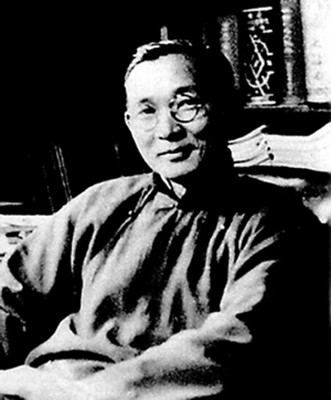Tea is then symbolic of earthly purity, requiring the most fastidious cleanliness in its preparation,from picking,frying and preserving to its final infusion and drinking, easily upset or spoiled by the slightest contamination of oily hands or oily cups.Consequently, its enjoyment is appropriate in an atmosphere where all ostentation or suggestion of luxury is banished from one's eyes and one's thoughts. After all, one enjoys sing-song girls with wine and not with tea, and when sing-song girls are fit to drink tea with, they are already in the class that Chinese poets and scholars favor. Su Tungp'o once compared tea to a sweet maiden, but a later critic, T'ien Yiheng, author of Chuch'uan Hsiaop,in immediately qualified it by adding that tea could be compared, if it must be compared to women at all,only to the Fairy Maku, and that,as for beauties with peach-colored faces and willow waists, they should be shut up in curtained beds, and not be allowed to contaminate the rocks and springs.For the same author says, One drinks tea to forget the world's noise;it is not for those who eat rich food and dress in silk pyjamas.

It must be remembered that, according to Ch'alu,the essence of the enjoyment of tea lies in appreciation of its color, fragrance and flavor, and the principles of preparation are refinement, dryness and cleanliness.












